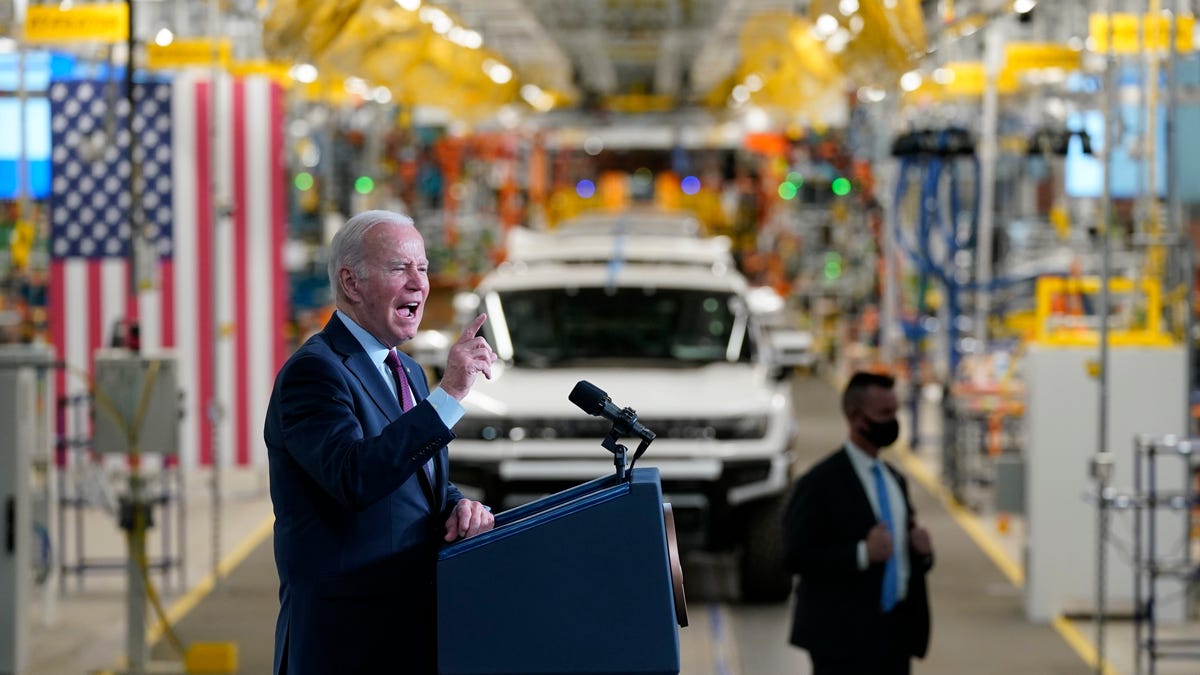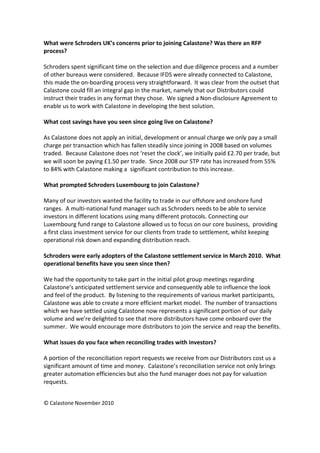Auto Dealers Intensify Opposition To Electric Vehicle Regulations

Table of Contents
Financial Concerns and Investment Costs
Many dealerships lack the infrastructure and expertise to effectively sell and service EVs, requiring significant upfront investment in new equipment, training, and specialized technicians. This financial burden disproportionately impacts smaller dealerships, potentially leading to business closures or consolidation. The transition costs associated with EV adoption are a major driver of opposition.
-
High cost of installing EV charging stations: The installation of fast-charging stations requires significant capital expenditure, and the return on investment (ROI) can be uncertain, especially for dealerships in areas with lower EV adoption rates. This is a major hurdle for many smaller dealerships.
-
Need for specialized training for technicians to handle high-voltage systems: EVs utilize high-voltage electrical systems, requiring technicians to undergo specialized training to safely diagnose and repair them. This training is costly and time-consuming, adding to the overall financial burden.
-
Uncertainty about return on investment in EV infrastructure: Dealerships face uncertainty about the long-term profitability of investing in EV infrastructure. Fluctuating consumer demand and government incentives make it difficult to predict the return on investments in charging stations and specialized tools.
Concerns about Inventory Management and Sales Models
EVs often have longer lead times and less predictable demand compared to traditional vehicles, making inventory management challenging for dealerships. The shift from traditional sales models to potentially subscription-based or online-focused EV sales further adds to their uncertainty.
-
Difficulty in forecasting EV sales due to fluctuating consumer demand and government incentives: Government incentives and subsidies for EVs can significantly impact consumer demand, making it difficult for dealerships to accurately forecast sales and manage inventory levels effectively.
-
Limited availability of EV models from manufacturers: The limited availability of certain EV models from manufacturers can lead to stock shortages and difficulties in meeting consumer demand, impacting sales and potentially leading to lost revenue.
-
Potential for increased inventory holding costs: Holding unsold EVs in inventory can lead to increased holding costs, including insurance, storage, and depreciation, putting a strain on dealership finances.
Opposition to Mandates and Government Intervention
Dealers are voicing concerns about overly aggressive EV mandates and government intervention that they feel are premature and disruptive to the market. They argue that the focus should be on consumer education and market-driven solutions rather than imposed quotas.
-
Concerns about unrealistic sales targets imposed by government regulations: Dealerships are concerned that government-mandated EV sales targets are unrealistic and unattainable, especially in areas with lower EV adoption rates or limited charging infrastructure.
-
Resistance to policies that favor EV sales over internal combustion engine (ICE) vehicles: Dealerships fear that policies that heavily favor EVs over ICE vehicles will negatively impact their sales of traditional vehicles and could lead to significant losses.
-
Belief that market forces should dictate the pace of EV adoption: Many dealers believe that the transition to EVs should be driven by market forces and consumer demand, rather than by government mandates that may not reflect the realities of the marketplace.
Lobbying Efforts and Industry Advocacy
Dealerships are actively engaging in lobbying efforts to influence EV regulations and advocate for policies that better align with their business interests. This includes working with industry associations to present a unified front and influence policymakers. They are actively pushing for more realistic timelines and supportive policies that ease the transition.
Conclusion
The intensifying opposition to electric vehicle regulations from auto dealers highlights the significant challenges and uncertainties associated with the transition to an EV-centric future. Financial burdens, inventory management difficulties, and concerns about government mandates are key drivers of this resistance. While the shift towards electric vehicles is inevitable, understanding and addressing the concerns of auto dealers is crucial for a smooth and equitable transition. Finding common ground and creating policies that support both environmental goals and the viability of the dealership network is essential for the long-term success of the EV market. Further dialogue and collaboration are needed to mitigate the opposition and ensure a sustainable future for the automotive industry, embracing responsible electric vehicle regulations and finding solutions that address the concerns of all stakeholders involved in the transition.

Featured Posts
-
 Time For A Change Rupert Lowes Leadership Bid For Reform
May 03, 2025
Time For A Change Rupert Lowes Leadership Bid For Reform
May 03, 2025 -
 Joseph Sur Tf 1 Critique De La Nouvelle Serie Policiere Avec Lucien Jean Baptiste
May 03, 2025
Joseph Sur Tf 1 Critique De La Nouvelle Serie Policiere Avec Lucien Jean Baptiste
May 03, 2025 -
 The Future Of Rail Sustainable Travel With Wind Powered Trains
May 03, 2025
The Future Of Rail Sustainable Travel With Wind Powered Trains
May 03, 2025 -
 Pichai Sounds Alarm Doj Antitrust Plan Could Destroy Google Search
May 03, 2025
Pichai Sounds Alarm Doj Antitrust Plan Could Destroy Google Search
May 03, 2025 -
 Schroders First Quarter Losses Clients Exit Equity Markets
May 03, 2025
Schroders First Quarter Losses Clients Exit Equity Markets
May 03, 2025
